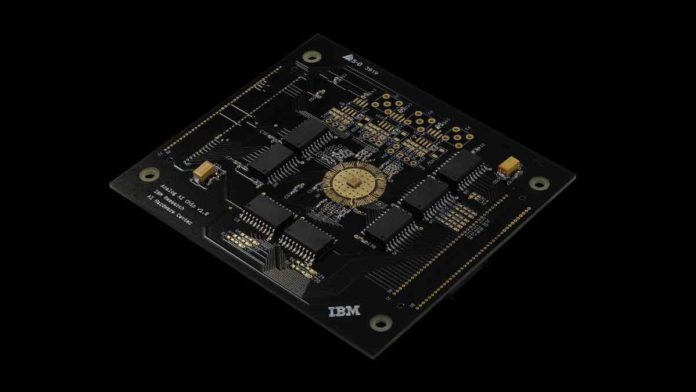A new prototype of an analogue AI chip that functions like a human brain and executes intricate computations for a variety of deep neural network (DNN) applications has been announced by the tech company IBM. According to IBM, the cutting-edge chip can significantly increase artificial intelligence’s efficiency while reducing battery consumption for computers and cellphones.
The completely integrated circuit has 64 AIMC cores that are coupled via an on-chip communication network, the company stated in a blog introducing the chip. Additionally, it uses extra processing and digital activation functions that are used in each convolutional layer and long short-term memory unit.
The 64 analogue in-memory computation cores in the new AI chip were created at IBM’s Albany NanoTech Complex. In order to bridge the analogue and digital worlds, IBM claims that it has incorporated small, time-based analog-to-digital converters inside each tile or core of the chip. These converters are modeled after the main characteristics of neural networks that operate in biological brains.
Read More: OpenAI’s Sam Altman Launches Cryptocurrency Project Worldcoin
According to the blog post from IBM, each tile (or core) also has compact digital processing units that carry out straightforward scaling and nonlinear neuronal activation operations. Future computers and phones could run advanced AI apps on IBM’s prototype chip instead of the ones that are now used.
IBM says that a lot of the chips being created right now separate their memory and processing units, which slows down computing. This indicates that AI models are often kept in a separate location in memory, and computational operations necessitate the frequent rerouting of data between the memory and processing units.
When comparing the human brain to conventional computers, Thanos Vasilopoulos, a scientist at IBM’s research facility in Switzerland, told BBC that the former is able to achieve remarkable performance while consuming little power. He claimed that because of the IBM chip’s improved energy efficiency, large and more complex workloads can be executed in low power or battery-constrained environments.


